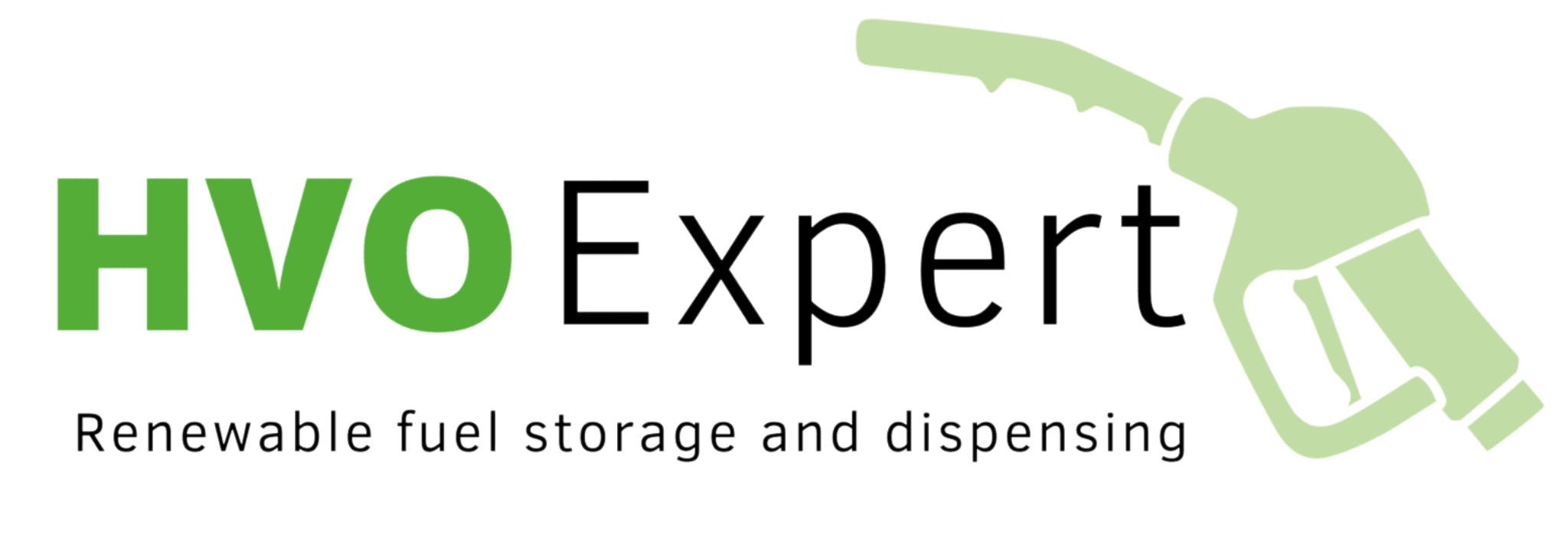The UK government is advancing its environmental agenda with a decisive move to phase out diesel vehicles. In response to the pressing issues of air quality and climate change, there has been a concerted effort to reduce emissions from transport, which is a significant contributor to air pollution. This initiative includes a transition away from diesel engines towards cleaner alternatives, such as Hydrotreated Vegetable Oil (HVO) Fuel, which is known for its relatively lower carbon footprint. As part of this shift, there are implications for the storage of HVO Fuel, which must be managed carefully to ensure environmental safety and compliance with new regulations.
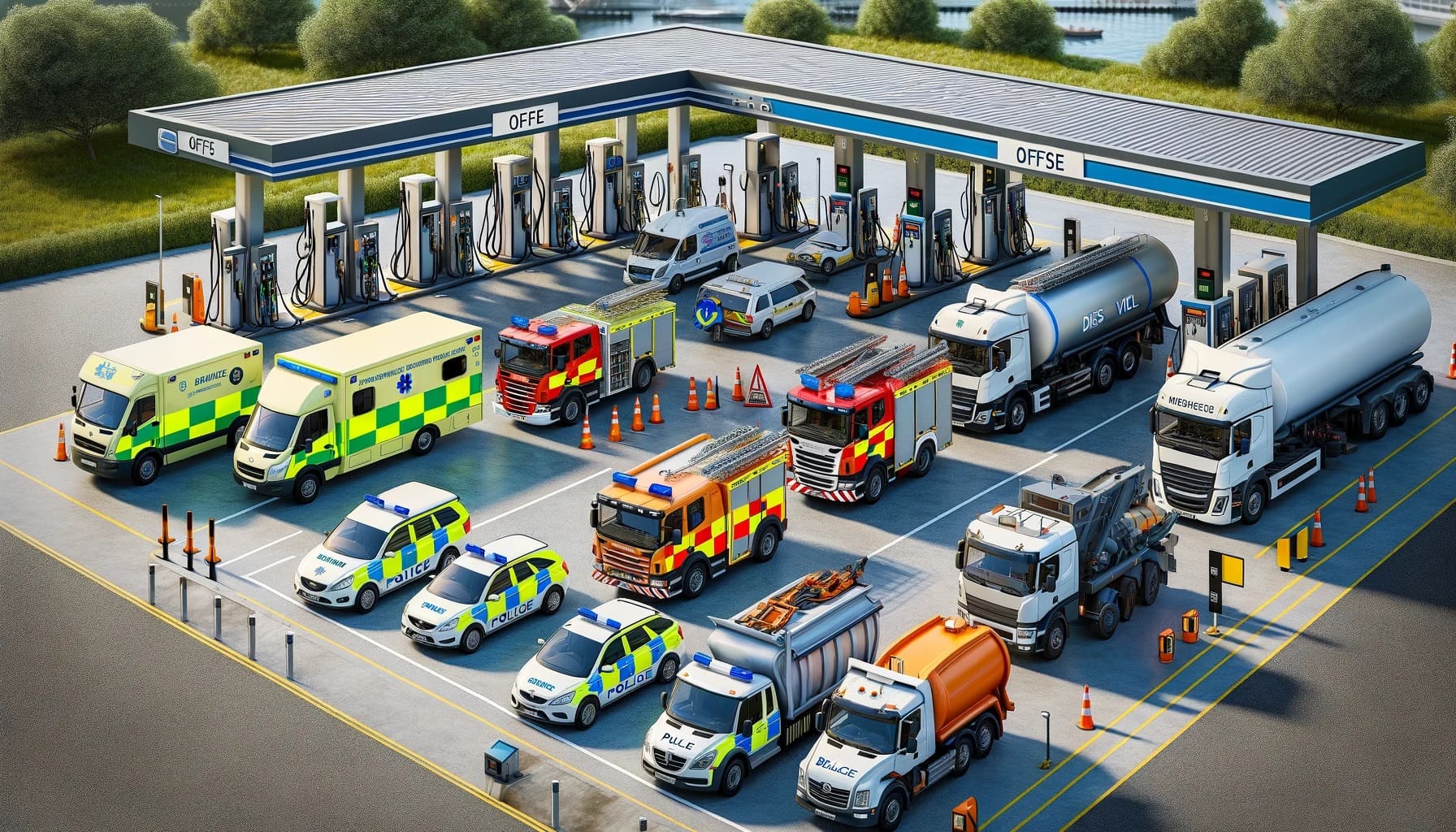
Emergency services and local government face unique challenges in the UK government phasing out diesel due to needing increased range for ready availability. Ambulances, police vehicles, and fire engines that have been traditionally diesel-powered must now be considered for upgrades or replacements with zero-emission alternatives. This move is likely to impact not only the procurement strategies for local government but also to influence the operational logistics of emergency and essential services. Similarly, companies with commercial vehicle fleets are required to adapt to these changes, balancing the logistical demands of their operations with the new environmental policies set by the government.
Key Takeaways
- The UK is reducing diesel usage for environmental benefits.
- Emergency and local government services are adapting their vehicle fleets.
- Companies must transition their fleets to meet new government regulations.
Impact on Local Government Services on the UK Government Phasing Out Diesel
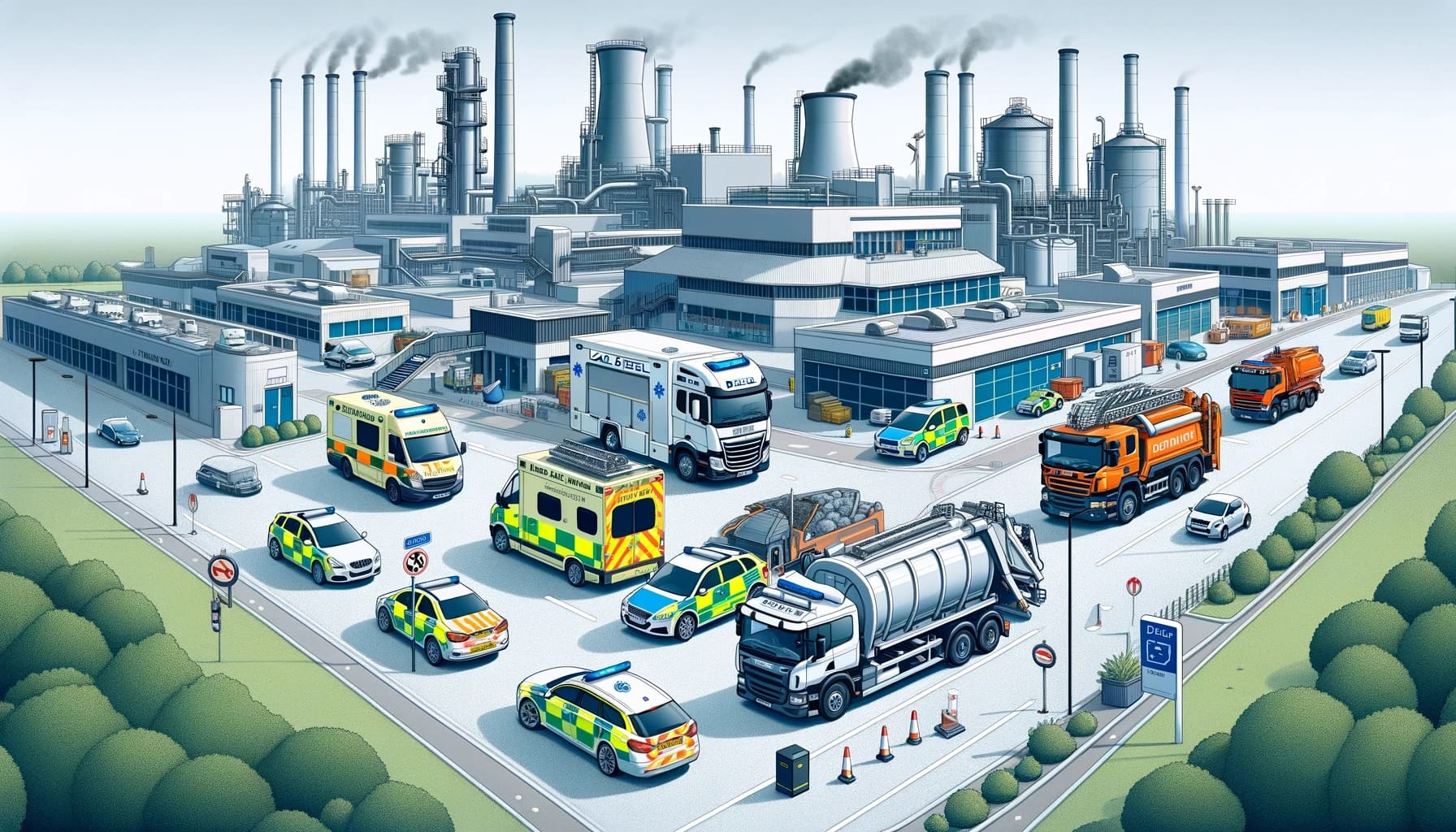
As the UK government phases out diesel, local government services are experiencing significant changes across transportation, emergency response, and law enforcement sectors. This transition to eco-friendlier alternatives affects everything from the daily operations of vehicle fleets to the storage of fuels like HVO Fuel.
Public Services
Local councils across the UK are increasingly moving towards electric vehicles for essential services such as public transportation as the UK government phases out diesel. However for services such as refuse collection and road surface treatment which require a longer range and special adaptations for their purpose, a transition to HVO Fuelcould be more appropriate. This transition to electric or HVO fuel vehicles reflects a growing commitment to environmental responsibility and the reduction of greenhouse gas emissions within the UK’s public sector fleet operations.
Fire Services
The shift from diesel poses particular challenges for fire services. Fire vehicles require powerful engines and immediate response capabilities, making the transition to non-diesel alternatives complex. Solutions under consideration include the adoption of vehicles powered by HVO Fuel, which have less environmental impact yet can still meet the demands of emergency services.
Hospital Services
The switchover to cleaner fuels as the UK government phases out diesel impacts ambulance fleets as hospitals re-evaluate their transport services to ensure that response times remain rapid. Strategies include the integration of ambulances designed for HVO Fuel use and expansion of electric-ambulance fleets, ensuring that critical hospital services can continue to function effectively during the diesel phase-out. It is worth noting right now that an electric only ambulance fleet would compromise on service reliability
Police Services
Police departments are adapting by introducing electric and hybrid police vehicles into their fleets. The police vehicles must remain reliable and responsive, making the choice of sustainable alternatives a priority that balances environmental concerns with operational requirements as the UK government phases out diesel. Transition plans include infrastructure development for maintaining an effective HVO Fuel storage and charging network.
Impact on Companies with Vehicle Fleets

The UK Government’s commitment to decarbonisation has profound implications for businesses operating large vehicle fleets, especially with heavy commercial and industrial vehicles which are required to travel long distances. The shift away from diesel engenders both challenges and possible opportunities for fleet-dependent services, especially within the realms of logistics companies or those with businesses that require transportation of heavy or highly perishable loads.
Challenges Faced
Cost Implications: Many companies are grappling with the heightened costs associated with transitioning from diesel to alternative fuels as the UK government phases out diesel. The capital expenditure needed to replace or convert existing fleets is substantial. Moreover, concerns around the infrastructure requirements for new fuels and the current rarity of suitable vehicles exacerbate the financial burden.
Transitioning to HVO fuel required little to no modification to existing fleets to reduce cost while benefiting from up to a 90% reduction in carbon output. Exisiting fuel storage systems need little modification. For companies that don’t yet have fuel storage systems, the long shelf life of HVO fuel means that storing fuel on site can now be a viable option as well as enjoying bulk buying discounts of HVO fuel.
Vehicle Availability: Local governments and services with specialised vehicle needs—such as ambulances or fire engines—are finding that suitable replacements for their diesel-fuelled vehicles are less readily available, leading to potential operational delays.
Many large vehicles manufacturers such as Pergeot, Vauxhall and Stellantis are only just starting to build plants that can manufacture electric light commerical vehicles. The instability in supply of converting or manufacturing eletric vehicles remains an issue such as the recent administration of Lunaz technologies. HVO fuel negates this as existing commercial vehicles can run on the fuel source straight away.
Diversifying Fuel Options: In search of practical options, companies are exploring a variety of alternative solutions:
- Electric vehicles (EVs): Offering zero emissions at the tailpipe, they are a favourable choice, especially for urban fleets.
- Hybrid models: They serve as a bridge technology for companies not yet ready to fully transition to EVs. The hybrid fuel sources could be HVO fuel as the UK government phases out diesel.
- HVO fuel: Utilised as a drop-in replacement for traditional diesel, it does not necessitate significant changes to HVO fuel storage or engine configurations.
The Practicality of HVO Fuel
Environmental Benefits: HVO fuel is recognised for its potential to significantly reduce greenhouse gas emissions by up to 90%, providing a more environmentally friendly alternative while maintaining performance levels comparable to diesel.
Engine Compatibility: Due to its compatibility with existing diesel engines, HVO fuel is gaining traction as a viable stopgap for vehicle fleets during the transitional period. This easing of the switch-over process is particularly significant for fleets of emergency service vehicles, where reliable performance is critical.
HVO Fuel Availability: The UK market for HVO fuel is expanding as the UK government phases out diesel, with heightened investment in production and distribution to meet the rising demand.
This effort is aimed at ensuring that entities like local governments can secure sufficient HVO fuel to maintain their essential services without disruption. Substantial investments are taking place across Europe, impacting the UK market as well. Repsol, for example, has increased its 2025 and 2030 targets for sustainable biofuel production. Of the new production total, up to 250,000 mt/year will be from an advanced biofuels plant at its Cartagena refinery in Spain.
Conclusion
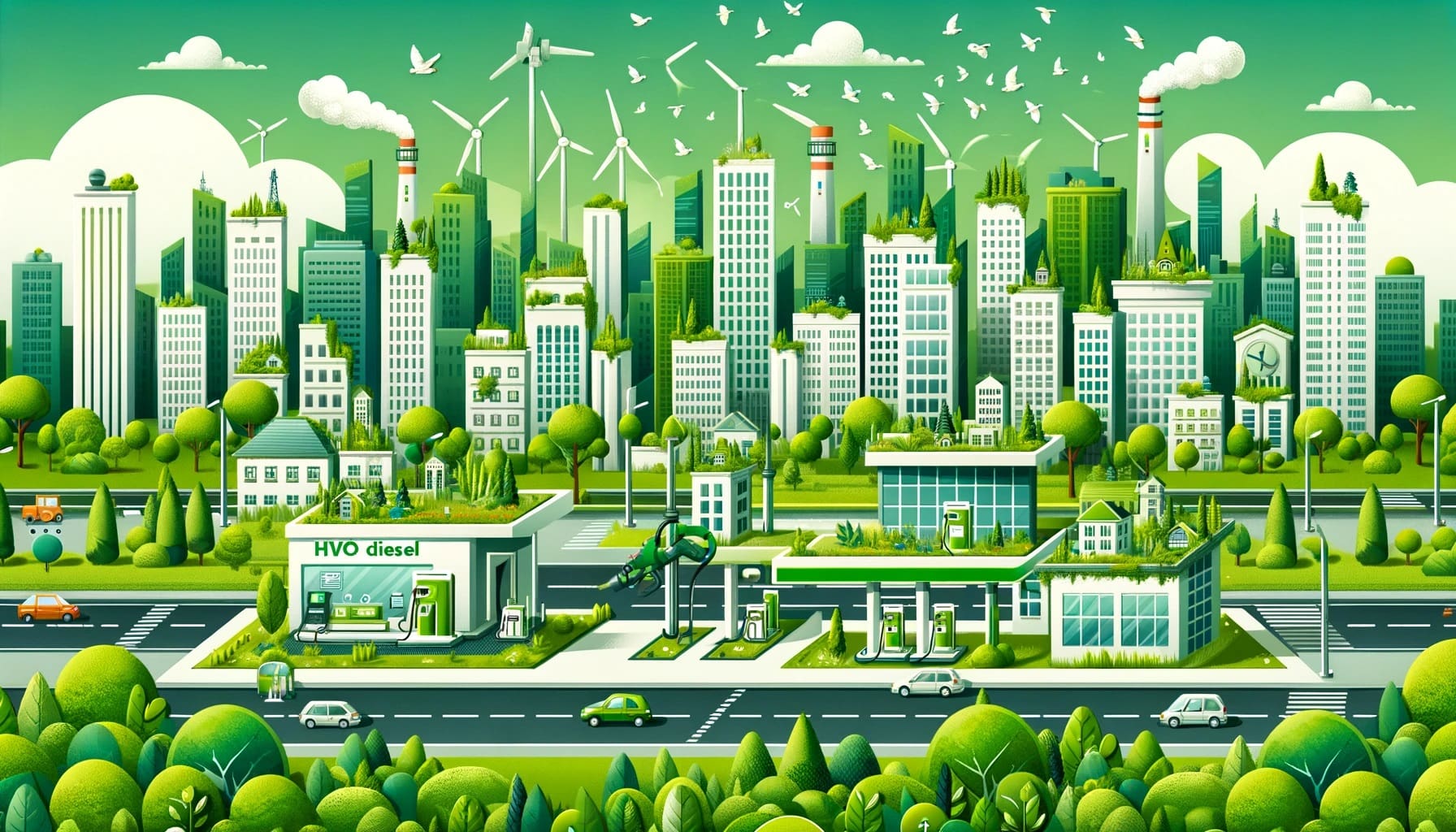
In light of the UK government phasing out diesel and traditional petrol engines, several key points merit emphasis. The implementation of this policy has profound implications for vehicle fleets managed by local government and essential services, including ambulances, police vehicles, and fire vehicles.
Hydrotreated Vegetable Oil (HVO) fuel emerges as a noteworthy alternative fuel, known for its capacity to reduce greenhouse gas emissions significantly. However, HVO fuel storage poses new considerations, necessitating secure and compliant solutions.
As the phase-out progresses, entities operating diesel fleets must evaluate their strategies. They face logistically complex requirements to adapt fleets amidst evolving regulations. The shift encourages innovation and the exploration of sustainable alternatives that align with net-zero objectives.
Ultimately, the success of this transition hinges on collaboration and the willingness to embrace change. Engaging with alternatives like HVO fuel can equip services and agencies with the tools necessary to operate effectively in a post-diesel era while EV vehicles can continue to develop. This proactive stance not only supports environmental goals but also sets the foundation for a resilient and sustainable transportation landscape.
Entities are thus encouraged to delve into the potential of alternative fuels and contribute to the collective effort towards a clean, green, and sustainable future for transportation across the UK.
Frequently Asked Questions
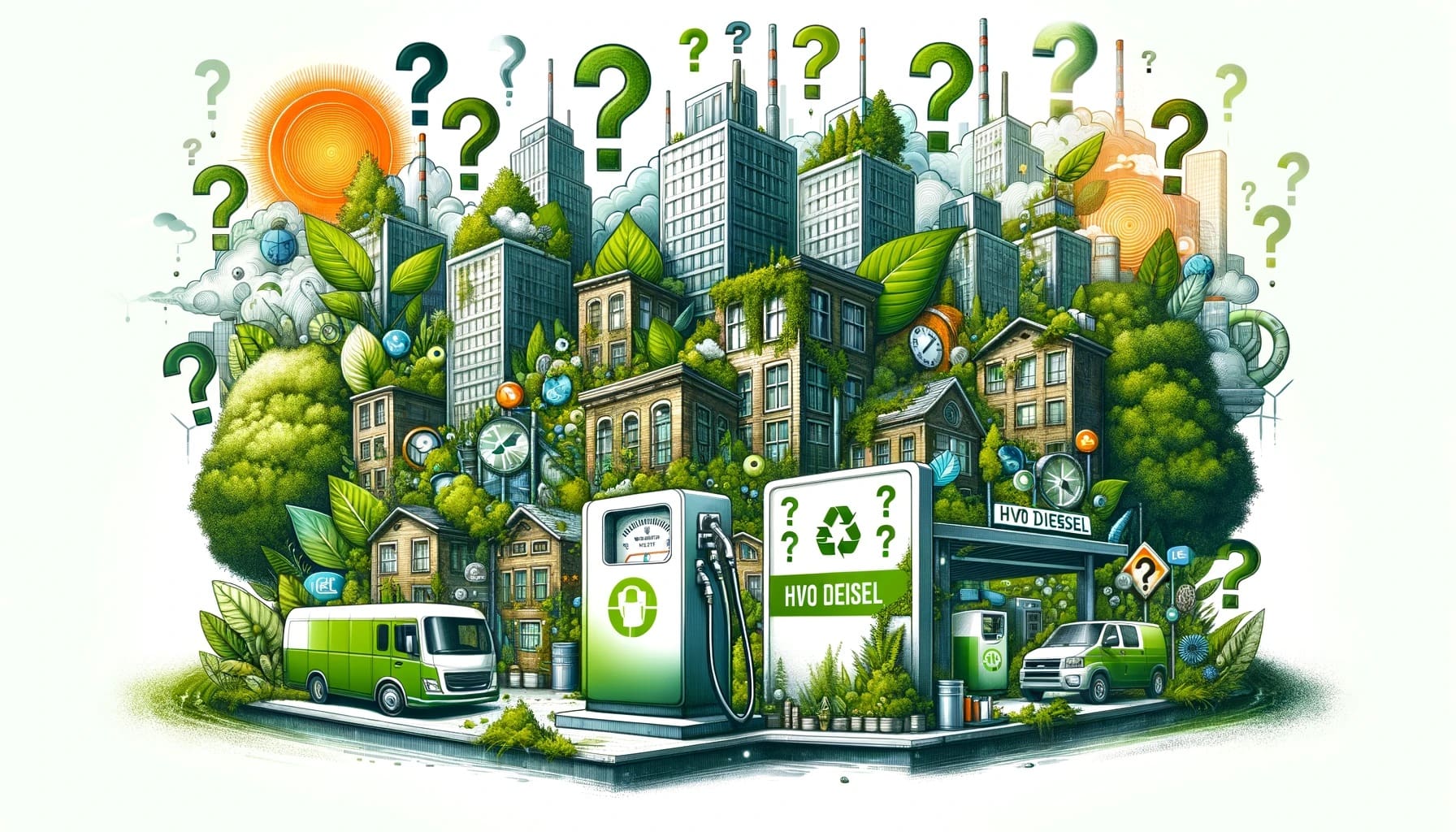
With the UK government’s decisive steps towards a more sustainable future, several key points regarding the transition from diesel need to be considered, including the phased timelines, impacts on vehicle fleets, promoted alternatives, and support mechanisms for businesses.
What is the timetable for phasing out petrol and diesel vehicles in the UK?
The UK government has charted a clear course to halt the sales of new petrol and diesel cars and vans by 2035, with a deadline of 80% of new cars and 70% of new vans sold in Great Britain set to be zero emission by 2030. This aligns with broader net-zero ambitions.
How will the ban on diesel cars affect existing fleet owners?
Existing fleet owners will need to adapt to the upcoming changes. Local government, as well as ambulance, police, and fire services, will need to transition their vehicle fleets to cleaner alternatives, which will involve phasing out current diesel vehicles in favour of zero-emission models.
What alternatives to diesel vehicles are being promoted by the UK government?
In the transition away from diesel, the government strongly promotes electric vehicles (EVs) and has been investing in charging infrastructure to support this shift. However due to challenges in the EV charging network and EV vehicle supply alternatives such as Hydro-treated Vegetable Oil (HVO) fuel are a valid alternative option, especially for sectors requiring heavier duty vehicles.
By what year will all new commercial vehicles sold in the UK be required to be zero-emissions?
All new commercial vehicles sold in the UK will be required to be zero-emission from 2035, ensuring that heavy vehicles, including those used by local governments and emergency services, contribute to the UK’s net-zero targets
